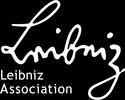
Die Verbundmitglieder
The 24 Leibniz institutes that made up the Alliance are drawn from four of the Leibniz Association’s sections.
Section A: Humanities and Educational Research
- Georg Eckert Institute – Leibniz Institute for International Textbook Research (GEI), Braunschweig
- Herder Institute for Historical Research on East Central Europe – Institute of the Leibniz Association (HI), Marburg
- Leibniz Institute for Contemporary History (IfZ), Munich / Berlin
- Leibniz Institute for East and Southeast European Studies (IOS), Regensburg
- Centre for Contemporary Research (ZZF), Potsdam
Section B: Economics, Social Sciences and Spatial Research
- German Institute for Economic Research (DIW), Berlin
- Leibniz Institute for Social Sciences (GESIS), Mannheim
- German Institute for Global and Area Studies (GIGA), Hamburg
- Leibniz Institute – Peace Research Institute Frankfurt (PRIF/HSFK)
- Leibniz Institute of Agricultural Development in Transition Economies (IAMO), Halle
- Leibniz Institute for Economic Research at the University of Munich (ifo)
- Kiel Institute for the World Economy (IfW)
- Leibniz Institute of Ecological Urban and Regional Development (IÖR), Dresden
- Leibniz Institute for Regional Development and Structural Planning (IRS), Erkner
- Halle Institute for Economic Research (IWH)
- Leibniz Institute for Economic Research (RWI), Essen
- Berlin Social Science Center (WZB)
- Centre for European Economic Research (ZEW), Mannheim
Section C: Life Sciences
Sektion D: Environmental Research
- Leibniz-Institute of Vegetable and Ornamental Crops (IGZ), Großbeeren und Erfurt
- Potsdam Institute for Climate Impact Research (PIK)
- Leibniz Institute for Tropospheric Research (TROPOS), Leipzig
- Leibniz Centre for Agricultural Landscape Research (ZALF), Müncheberg
- Leibniz Centre for Tropical Marine Research (ZMT), Bremen
